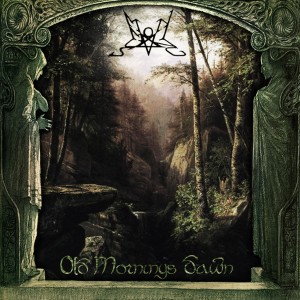 After the first wave of Norwegian black metal entirely re-defined the genre into a melodic and intensely artistic form of music, it seemed metal had culminated. Its technique exploded in death metal, and with black metal, it began the process of creating narrative melodic compositions.
After the first wave of Norwegian black metal entirely re-defined the genre into a melodic and intensely artistic form of music, it seemed metal had culminated. Its technique exploded in death metal, and with black metal, it began the process of creating narrative melodic compositions.
Summoning jumped into this heap by evolving from a relatively straightforward downtempo black metal band into a melange of keyboards, lengthy fast-picked slow melodic passages, and soundtrack-style framing of song structures in the context of atmospheric, Tolkien-inspired vaguely medievalist metal. Ever since they nailed that combination on Dol Guldur, Summoning has been a legend in the metal scene.
After the experiment in greater use of vocals and folk-like dynamics that was Stronghold, Summoning returned with Oath Bound, which edged them closer to the territory last explored on Dol Guldur before the music got more atmospheric on the Nightshade Forests EP. Seven years later, anticipation ran high for their latest, named Old Mornings Dawn.
Coming from the same creative wellspring as other Summoning works, Old Mornings Dawn channels three separate influences: the classic downtempo black metal of its origins, the “Renaissance Faire” style of folk/world music that it became, and an influence that can only be described as dark 1980s industrial goth pop. This album fits in with Joy Division, Soft Cell, Sisters of Mercy and other darker forms of synthpop and EBM, much in the same way that Nightshade Forests picked up similar influences. At the same time, hints of the Stronghold style where vocals lead composition help define these songs.
What is most pronounced on this album however is that Summoning are using the layered style that worked so well on not only Nightshade Forests but the Lost Tales EP as well, but have removed even more of the metal “forward” style narrative composition. Instead, these are circular compositions with layers, but in the best metal style, moods accrue and eventually force change into an entirely different but complementary riff. The result is a ferment of slightly differentiated influences fit into the only song structures that could incorporate them all. The result is like an exotic tour alongside a riverbank populated by fantastic figures from dreams.
Old Mornings Dawn is a creative journey into the recesses of the mind and embraces the sentimental alongside the epic, using its ambient structuring to immerse the listener in a world far beyond anything they have experienced. The result drifts farther from black metal without betraying black metal, and instead creates a voice unique to Summoning which sensibly does not try to be Dol Guldur II, but to create a niche for itself. Its decreased distance from the listener allows emotion to meld with music and create an atmosphere unique to this band and the spread of time they have chosen with their music.
12 CommentsTags: Black Metal, Old Mornings Dawn, review, Summoning

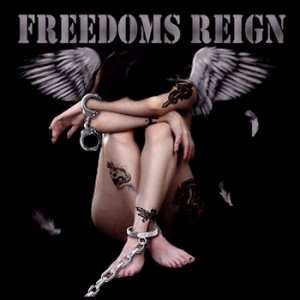
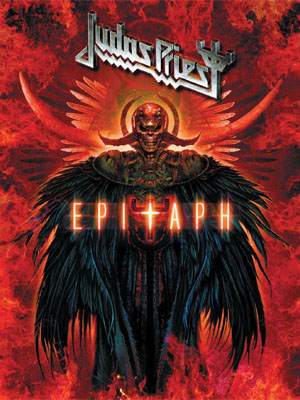

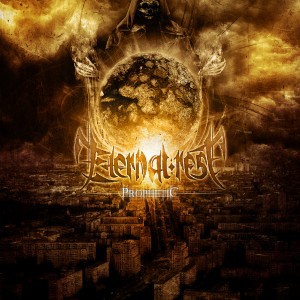
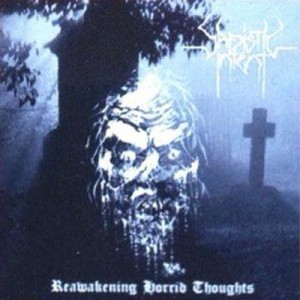
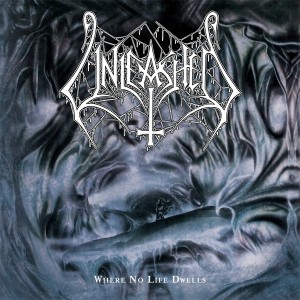 Although AC/DC and Motorhead have been putting out basically the same album over and over for 30 years, fans of these two bands never blamed them for not being different.
Although AC/DC and Motorhead have been putting out basically the same album over and over for 30 years, fans of these two bands never blamed them for not being different.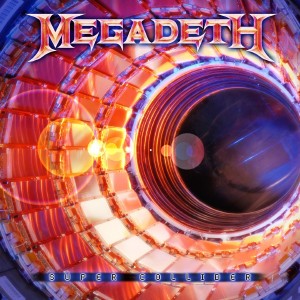
 For those that are unaware of the Toba catastrophe theory – it’s based on a supervolcanic event in present-day Indonesia that changed the world. Around 75,000 years ago one volcanic eruption bottle-necked the human species and put the Earth into a decade-long volcanic winter. The human species was rendered to less than 10,000 breeding pairs and the planet was cooled. These volcanic events are nature’s way of bringing a balance back to the planet; something that modern civilization doesn’t pay any heed to because most people pigeonhole themselves in mundane routines.
For those that are unaware of the Toba catastrophe theory – it’s based on a supervolcanic event in present-day Indonesia that changed the world. Around 75,000 years ago one volcanic eruption bottle-necked the human species and put the Earth into a decade-long volcanic winter. The human species was rendered to less than 10,000 breeding pairs and the planet was cooled. These volcanic events are nature’s way of bringing a balance back to the planet; something that modern civilization doesn’t pay any heed to because most people pigeonhole themselves in mundane routines.
